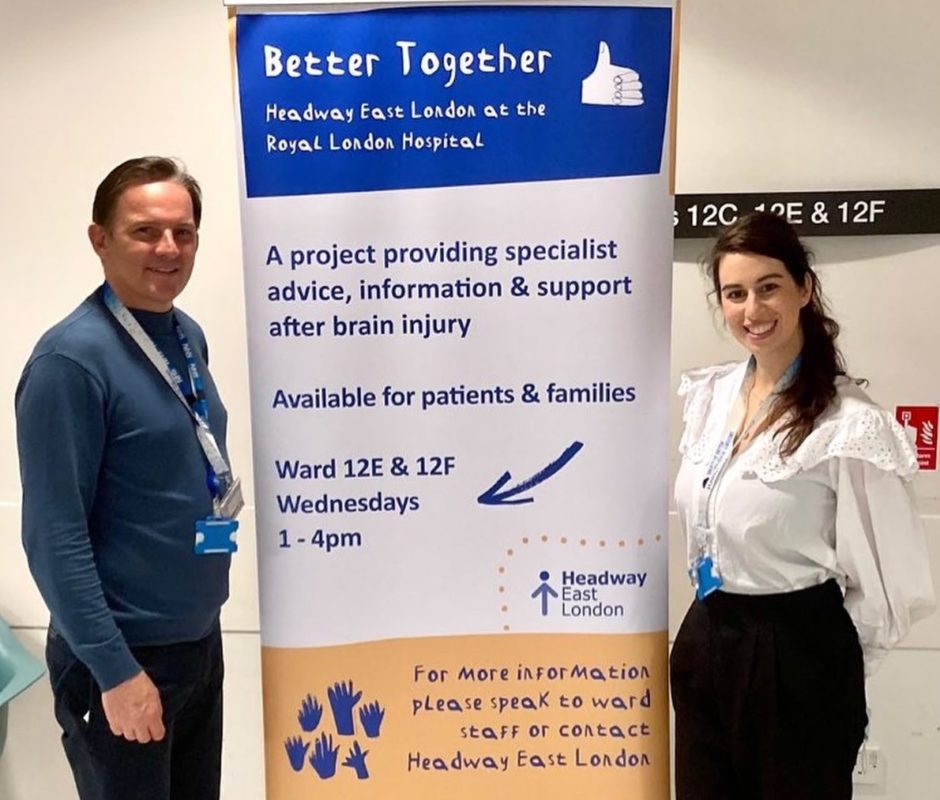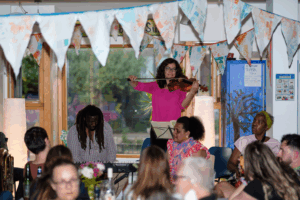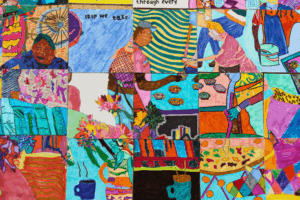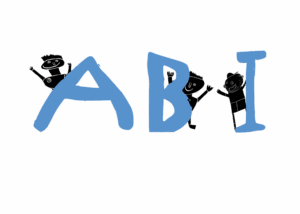Peer Support Worker Dean has been involved with Headway East London for nearly a decade. From comms volunteer, to Saturday Social support, and now his current role in the Casework team working with survivors and their families in the critical aftermath of brain injury; he brings a unique perspective to our work through his own lived experience. In addition to running support groups, he is a key member of our newly launched Better Together project at the Royal London Hospital, visiting patients and families on trauma wards.
In a job providing so much support to others, support for Dean is important too. Step in, Ipek. Ipek from Bolt Burdon Kemp has been a friend of Headway East London for many years, and most recently she has taken on a role as a peer mentor to Dean. We caught up with the pair as we launched our latest Casework project Better Together to talk collaboration, care…. and cats!
Working together
Ipek: I started mentoring Dean in December 2018, and since then I’d say we’ve had a very relaxed, friendly partnership.
Dean: Yeah, I don’t feel under any pressure for anything. We just go with the flow and it’s just easy. It works for us.
Ipek: Over that time I’ve joined Dean in the Hackney support group meetings, and we also did two visits to the Royal London hospital on the wards. We’ve had Dean come into our offices. We’ve had zoom catch-ups. We message on WhatsApp. Dean’s got a lot going on and he’s a busy man, so I always say to him “whenever you want to chat, even if it’s just chatting about nothing, let me know and we can always meet up”.
Dean: And you see from my side, when I’ve been mentored before it could be a bit regimental. With Ipek nothing’s a problem. Do you know what I mean? So it’s just as and when; it could be every day but then I might not talk to her for a month. It’s just relaxed. It flows. If there are ever things that come up, legal things, I do approach Ipek and get advice. I’ll get my personal advice, I’ll get professional advice, I get all the advice!
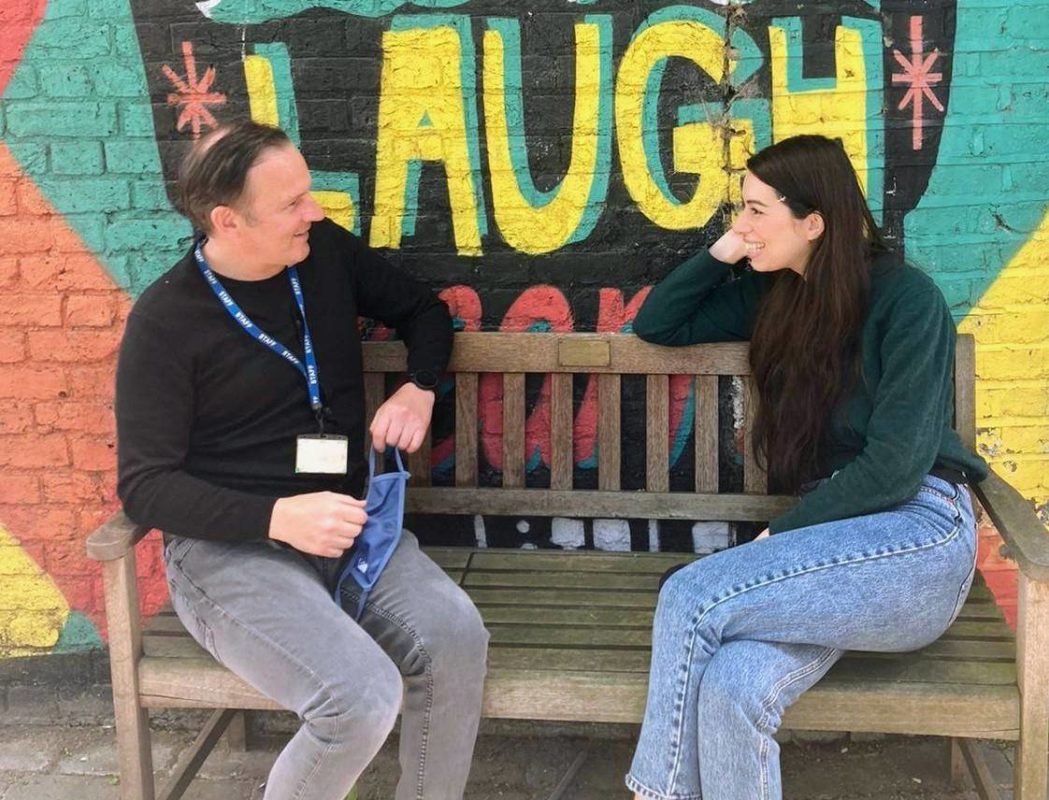
Ipek: Oh, and it’s a pleasure. I think we have a lot of trust between the two of us.
Dean: When someone’s had a brain injury, especially in my case, you need trust and she’s got it from me. That’s a big thing, that’s half the battle. I can open up because I can trust her. She’s a good kid. And she loves cats!
Ipek: Haha, cats are my downfall! When I first met Dean, it was because I was mentoring another Peer Support Worker at Headway and we went to an event together, so we’ve had the opportunity to work on some projects together and get to know each other over time. I would say it’s been… like a friendship. I know that’s not what mentoring is really meant to be about, but it has been.
Dean: If this journey comes to a conclusion somewhere then I know we still stay in touch because, for me, she’s a good person to know. Because if she doesn’t know, she’ll try to find out!
The project
Ipek: My role in all of this is just to genuinely support Dean. He is such a natural; seeing him in the hospital previously was quite emotional. I was so blown away by Dean’s strength, and his ability to connect to anyone regardless of age, gender, wherever they come from or whatever’s happened to them. People instantly warm up to him. It’s a real skill. But as much as Dean is incredible in those situations, I also, I acknowledge that it’s difficult.
I just want to be there for Dean incase a situation arises where he’s not comfortable or he needs a break, because I know that Dean can just plough on because he wants to help everyone, which is a great attribute, but we’ve also got to take care of the Deans!
Dean: I just can’t believe how complex people are. We just take it for granted that you can get on with certain things, but some things are just too complex. That’s what drains me, and that’s when support for me is helpful too.
Ipek: It’s not an easy project. It’s not easy for the patients, obviously they’re going through a really difficult time, and it’s not easy for Dean, but I’m really excited about hopefully changing people’s lives and giving them some hope and direction.
I’ve learned so much too! We tend to work with people who’ve been discharged and have no idea what to do; the doctors have been taking care of everything and now they are home and need support. And to be honest, until working with Headway East London and learning from Dean, there was so much I didn’t know about the practical changes people need to consider either.
Dean: What I find so amazing about this project is that the doctors and nurses do their thing, the Casework team and Ipek do their thing, the families do their thing, and I do my thing. I can’t do what you guys do, and you can’t do what I do, so we complement each other. We couldn’t do it without one another. There’s a chain, and we’re a team.
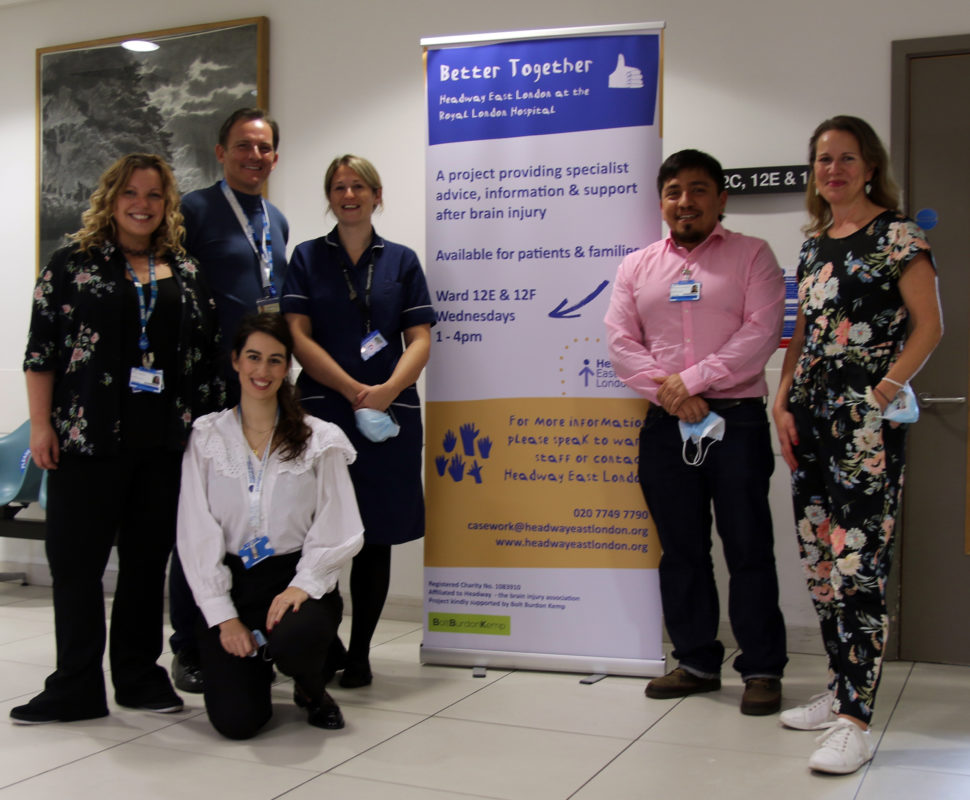
Ipek: I completely agree! I actually don’t think one role is any more important than the other. Obviously, the clinical team at the start are crucial. But once people are in a stable position, they need that unilateral approach and no one person or service is more important than the other. The hospital staff are amazing, and I’m hoping we can make their jobs easier by answering some of the other questions they might get from patients and families.
And I know I’ve said it before, but Dean’s role really can’t just be replicated by anyone else. Even if I was saying verbatim what he was saying, it just doesn’t ring true because I haven’t walked in those shoes. I think that’s what makes it really powerful. And I know from those times that we went to the hospital, families were glued to every word he said because they know he’s been through this too. I think just he’s the perfect person for this project.
If you would like more information about this service, or would like to speak about support for you or a loved one after brain injury please contact casework@headwayeastlondon.org.

